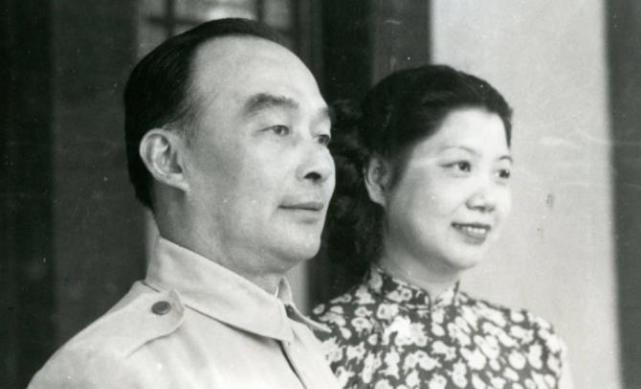Hu Zongnan was a graduate of the Huangpu Phase I, known as "the first protégé of Tianzi", was a close general of Chiang Kai-shek, in the Liberation War, Hu Zongnan served as the director of the Xi'an Appeasement Office, holding hundreds of thousands of troops, becoming the famous "King of the Northwest".

In 1950, Hu Zongnan was beaten by the People's Liberation Army and fled to Taiwan, and his corps commanders also had their own endings, one of which is worth mentioning Hu Zongnan's deputy Pei Changhui, who served as deputy director of the Xi'an "Appeasement" Office, concurrently served as the commander of the 5th and 7th Corps, and was Hu Zongnan's deputy.
Pei Changhui was a native of Weifang, Shandong, born in a wealthy family, educated in patriotic ideology from an early age, determined to save the country through industry, and later threw himself into the pen from Rong, was admitted to the 8th phase of the Baoding Army Officer School, and after graduation was assigned to Sun Chuanfang's army, and later transferred to the Kuomintang army.
Judging from this experience, Pei Changhui was a general of the Miscellaneous Army, not a Huangpu student or a fellow of Chiang Kai-shek, and was destined to become a general of the Yan clan, but Pei Chang would have real ability, in the War of Resistance, in 1936, he led the 47th Division to reinforce Zhuo County, Hebei.
At that time, when the friendly defense was gradually defeated, the Japanese army used advanced weapons and equipment to gain an advantage on the battlefield, Pei Changhui led his troops to stubbornly resist, held on to the defensive position for 7 days and 7 nights, and broke through the enemy's blockade line to save themselves.
It is worth mentioning that during the War of Resistance Against Japanese Aggression, Pei Changhui's relations with the Eighth Route Army had been good, and in July 1940, Pei Changhui was promoted to the commander of the 9th Army, and according to the order, his troops were transferred from Taiyuan to the area of Wangwu Mountain and Taihang Mountain, where he and the Eighth Route Army cooperated in the fight against the Japanese.
The two sides have been friendly for 2 years, during which Chen Geng and Pei Changhui have a very good relationship, at that time, due to the severe fighting behind enemy lines, the eighth route army's small detachments would sometimes stop at the defense area of the 9th Army, and Pei Chang would order a warm reception of the eighth route army soldiers and replenish their ammunition.
From this point, it can be seen that in the face of the great national righteousness, Pei Changhui was able to put aside factional disputes, which also laid the groundwork for his later uprising, regrettably, Pei Changhui could not take care of his family in the foreign war, 7 of his relatives were killed by the Japanese, and only the second son escaped danger.
After the victory of the War of Resistance, Pei Chang would be coerced into participating in the Liberation War, and in April 1948, he successively participated in the battles such as Huti Mountain, which blocked the people's liberation army from going south, in which Pei Chang would lose soldiers and constantly retreat to Sichuan, and when he arrived in Baoji, he met a friend.
His friend, Li Xisan, was a member of the Communist Party, and under the enlightenment of his friend, Pei Changhui let go of his concerns and decided to lead more than 100,000 soldiers under his command to revolt, and because he could not find a suitable opportunity, Pei Changhui's uprising was postponed until December 23, 1949.
On this day, he led an uprising in Deyang, Sichuan, and Pei Changhui successively served as the director of the Industrial Department of Northern Sichuan and the director of the Southwest Textile Bureau, and after the uprising, Pei Changhui always had a wish, that is, to join the Communist Party, and this wish was not fulfilled until he was 93 years old.
In his later years, Pei Changhui was too old to engage in specific leadership work, and on February 23, 1992, at the age of 96, Pei Changhui died of illness in Chongqing at the age of 96, three years after he joined the Party.